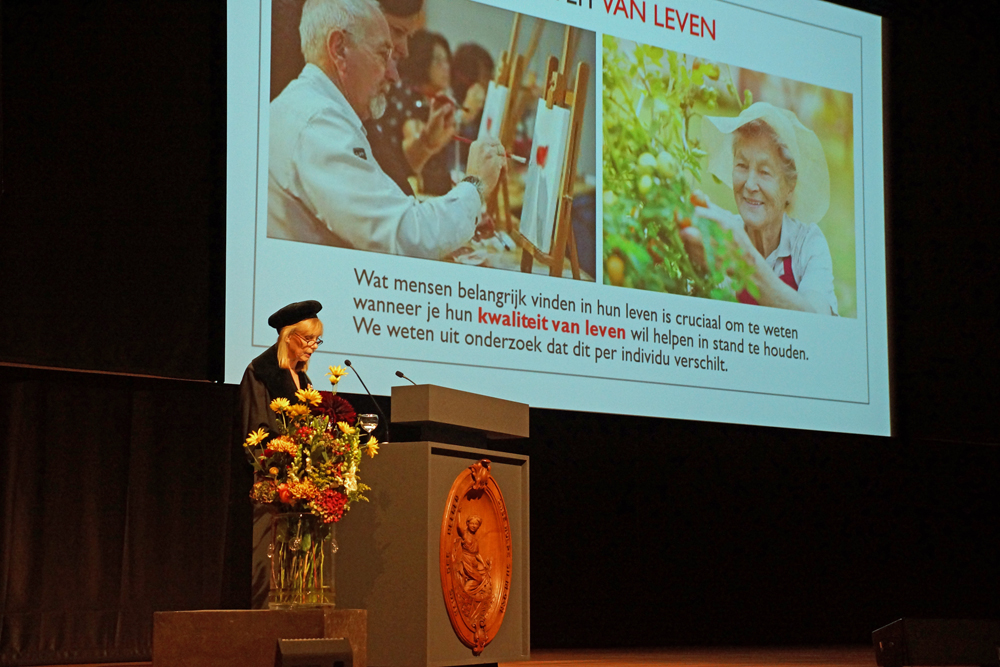Farewell speech Professor Rose-Marie Dröes
For over 40 years, Prof Rose-Marie Dröes conducted research on psychosocial support for people with dementia. On 11 October 2022, she held her farewell speech in the auditorium of the VU University of Amsterdam.
She began her lecture with a poem she wrote as a teenager, where attention to emotions was expressed early on. When she later came in contact with people with dementia, she could not imagine that behavioural and mood problems were all related to brain degeneration. A view that was still common in the 1980s. How people cope with the effects of dementia also partly determined their behaviour and based on that, Rose-Marie developed the adaptation-coping model for dementia care. Besides coping with seven adaptive tasks after receiving the diagnosis dementia, it includes other factors such as personal factors, co-morbidity, material and social factors.
This model has been the basis for many psychosocial interventions Rose-Marie has developed and evaluated. In doing so, it is always important to know well what people consider important for their quality of life and to match this as closely as possible in care and support. An example of a psychosocial intervention based on the adaptation coping model are the Meeting Centres for people with dementia and their loved ones. These are now widespread in the Netherlands and are also mentioned in the National Dementia Strategy 2021-2030. A goal of this strategy is for 80% of people living at home to have access to a meeting centre in their own region by 2030. Meeting centres have also been set up and evaluated outside the Netherlands.
Rose-Marie has also worked to develop and evaluate e-Health interventions that can help with needs of people with dementia and their loved ones and/or promote quality of life. Examples include FindMyApps, the Fotoscope app, Into d’mentia, and the STAR online training.
Rose-Marie Dröes will continue to work one day a week as professor of psychosocial support for dementia. She also initiated to establish the Academic Working place on Helping Dementia After Diagnosis. This working place was officially opened prior to her farewell lecture. Its aim is to strengthen the connection between research, education and practice. In doing so, it aims to contribute to improving the care and quality of life of people living at home with dementia and their informal carers but also to promote the expertise of care and welfare professionals and volunteers. This means that despite her chair will cease to exist due to her departure, her long-standing mission can continue.

